BUP Interview with Nikola Dacev

Balkan University Press is excited to share the BUP interview with Assoc. Prof. Dr. Nikola Dacev, the Dean of the Faculty of Law at International Balkan University. His forthcoming book, “Civil Law,” is part of the Introduction Books series, aimed at developing a comprehensive collection of introductory books across various academic fields, thereby enhancing the IBU educational resources and showcasing the higher education standards it so strongly values.
BUP: Your book provides both a theoretical and practical overview of civil law. What motivated you to structure the content in a way that balances these two perspectives, and how do you see this balance benefiting students as future legal practitioners?
ND: There is no superstructure without a foundation, just as there is no theory without practice. My motivation arose from the challenges I encountered after graduating from the Faculty of Law and entering professional practice. Early on, particularly in civil law cases, I realized that theoretical knowledge alone was insufficient to resolve many of the issues at hand. I was able to do that after I acquired the practical knowledge as well. Theory provides the necessary conceptual framework and systematic understanding, but the legal practice ensures the proper application of norms, enables the resolution of disputes, and secures the effective functioning of the legal system. That's why I structured the book content this way; without a balance of theory and practice, there will be no good legal practitioners.
BUP: You discuss the influence of Roman law, European civil codes, and modern reforms on contemporary civil law. How do you think these different traditions continue to shape civil law in the Balkans today, and what unique challenges or opportunities do you see for Macedonia in this context?
ND: The civil law in the Balkan countries is strongly influenced first by Roman law, followed by European codifications from the 19th century, where we can mention the French and German civil codes as the most significant, and more recently, with the modern reforms, the contemporary civil law is created primarily under the influence of EU law and international instruments. Macedonia, as a candidate country for EU membership, is continuously harmonizing its domestic law with EU legislation, but in terms of civil law, it is necessary to note that with the preparation of the Civil Code, which is in its final stage and is expected to be adopted, Macedonia will largely overcome legal inconsistencies and contradictions in certain laws and will strengthen legal certainty and coherence with the Macedonian legal system.
BUP: The book includes case analyses and comments on the application of civil law norms. Could you share an example of a case or issue that you believe best illustrates the practical importance of understanding civil law principles?
ND: A common example used in teaching and practice that adequately illustrates the principles of civil law is the sale of real estate when the contract is signed before a notary. Still, due to an omission, it is not registered in the Real Estate Cadastre. Then the seller concludes a new contract and sells the same real estate to a third party, this time with a proper registration in the Cadastre. In this case, the real owner of the apartment is the third party, i.e., the person who registered his right in the Real Estate Cadastre, provided that he was conscientious. The second party has the right to compensation for damages, because the contract has an obligatory effect, but cannot be enforced. This example is one of those that most adequately illustrate the importance of both knowledge of the rules for concluding a contract and the principles of public credibility, conscientiousness, and protection of legal transactions.
BUP: Civil law regulates fundamental aspects of human relations, such as property, obligations, and family matters. In your view, how does civil law contribute to strengthening the rule of law and protecting individual rights in rapidly changing societies?
ND: Civil law, through the appropriate regulation of property, obligation, and family relations with provisions that correspond to the fast-paced social and technological changes of today, primarily in developed countries, represents the basis for the rule of law in the everyday lives of citizens. The principles of legal certainty and predictability, outlined in the book, directly contribute to the protection of individual rights and establish a balance between the interests of civil subjects, thereby contributing to the stability of the legal order.
BUP: In the foreword, you mention technological, social, and economic changes influencing legal systems. How do you see civil law evolving in the 21st century, particularly with challenges like digital assets, cross-border disputes, and the protection of personal data?
ND: Civil law, as well as law in general in the 21st century, is moving towards digitalization, internationalization, and personalization, and the challenges it faces include, among others, digital assets, cross-border obligations, and the protection of personal data. New forms of property, such as cryptocurrencies and virtual goods, necessitate novel legal solutions, while the globalization of trade underscores the importance of harmonizing legal rules. The right to privacy is becoming a central value, and the emergence of smart contracts and autonomous systems raises questions about their validity and responsibility. In this context, it is crucial for legal science and practice to maintain the essence of the legal tradition, the protection of human dignity and legal certainty, in the search for appropriate responses to the new technological and social realities.
Nikola Dacev holds a doctoral degree in legal sciences from the Faculty of Law, Justinijanus Primus, St. Cyril and Methodius in Skopje, North Macedonia, and currently works as an associate professor at the Faculty of Law, International Balkan University, Legal Studies Department, and serves as its Dean. He previously worked in the banking sector as a legal adviser in the legal affairs department and as a project coordinator for bank insurance, in a law office, as a lawyer, and as a professional representative for industrial property. He has been working as a lecturer at the Faculty of Law at International Balkan University since 2015. He published many scientific research papers in international and domestic journals and publications. His research activities are focused on civil law, law of obligations, insurance legislation, health law, international agreements on e-commerce, artificial intelligence and law, and more.
Latest News
-

Opened call for the new issue of TEFMJ
Date: 10.02.2024 -

The Journal of Law and Politics welcomes your papers
Date: 10.02.2024 -

-

Call for Papers for an Edited Volume
Date: 27.05.2024 -

Open Call for Chapter Proposals
Date: 27.05.2024 -

The new issue of Journal of Law and Politics is here!
Date: 01.05.2024 -

TEFMJ June issue is published
Date: 01.07.2024 -

IJEP's Vol. 5, Issue 1 is now available!
Date: 02.07.2024 -

Vol. 4, Issue 1 - IJTNS
Date: 01.07.2024 -

The first IJAD volume is online!
Date: 02.07.2024 -

Balkan University Press Launches the Journal of Balkan Architecture
Date: 15.07.2024 -

-

Balkan Political Economy Series welcomes your proposals
Date: 18.07.2024 -
BUP Interview with Prof. Marija Miloshevska Janakieska
Date: 18.07.2024 -
BUP Interview with Asst. Prof. Dr. Ahmet Lökçe
Date: 24.07.2024 -

-
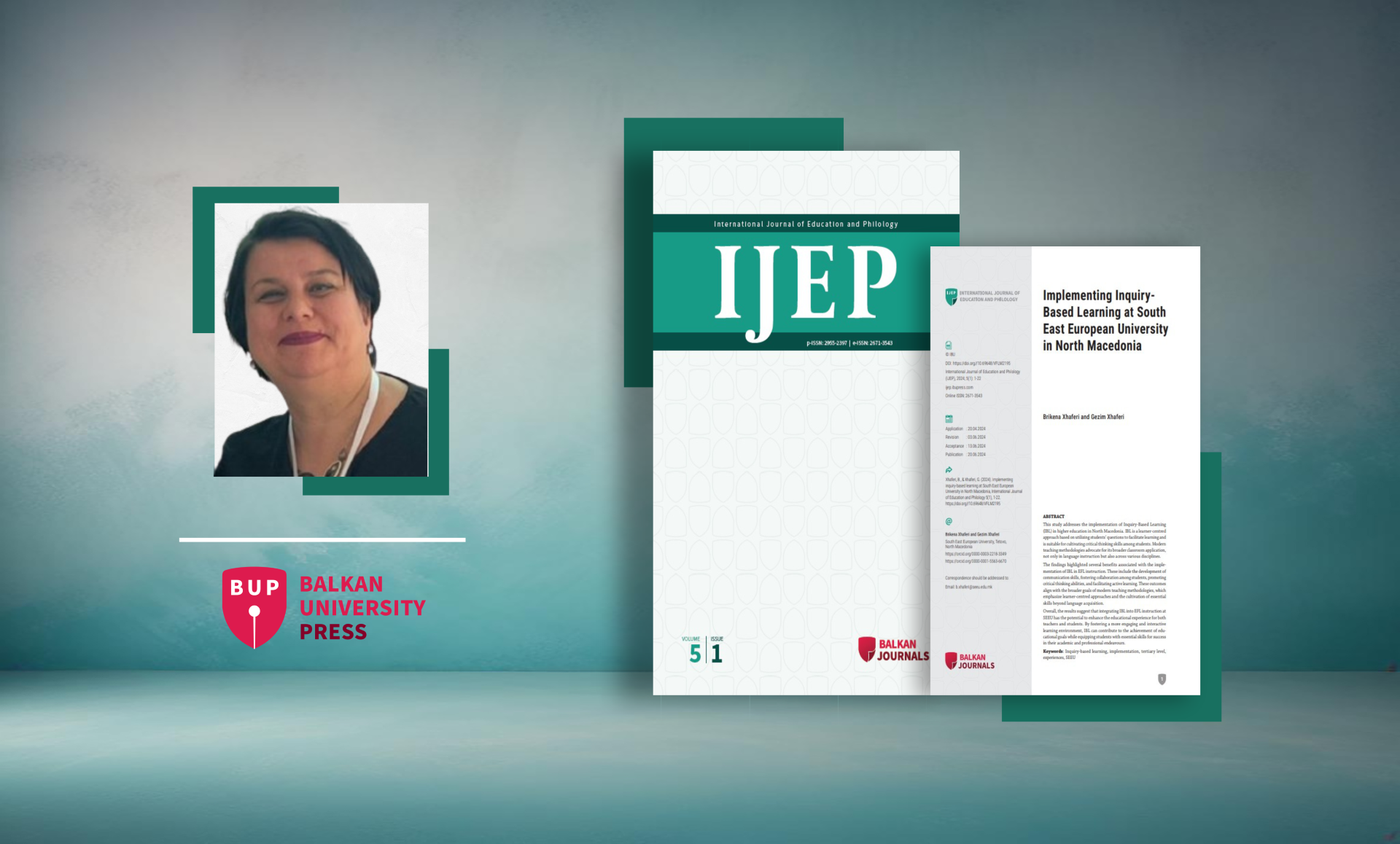
Prof. Xhaferi's blog for BUP
Date: 28.08.2024 -
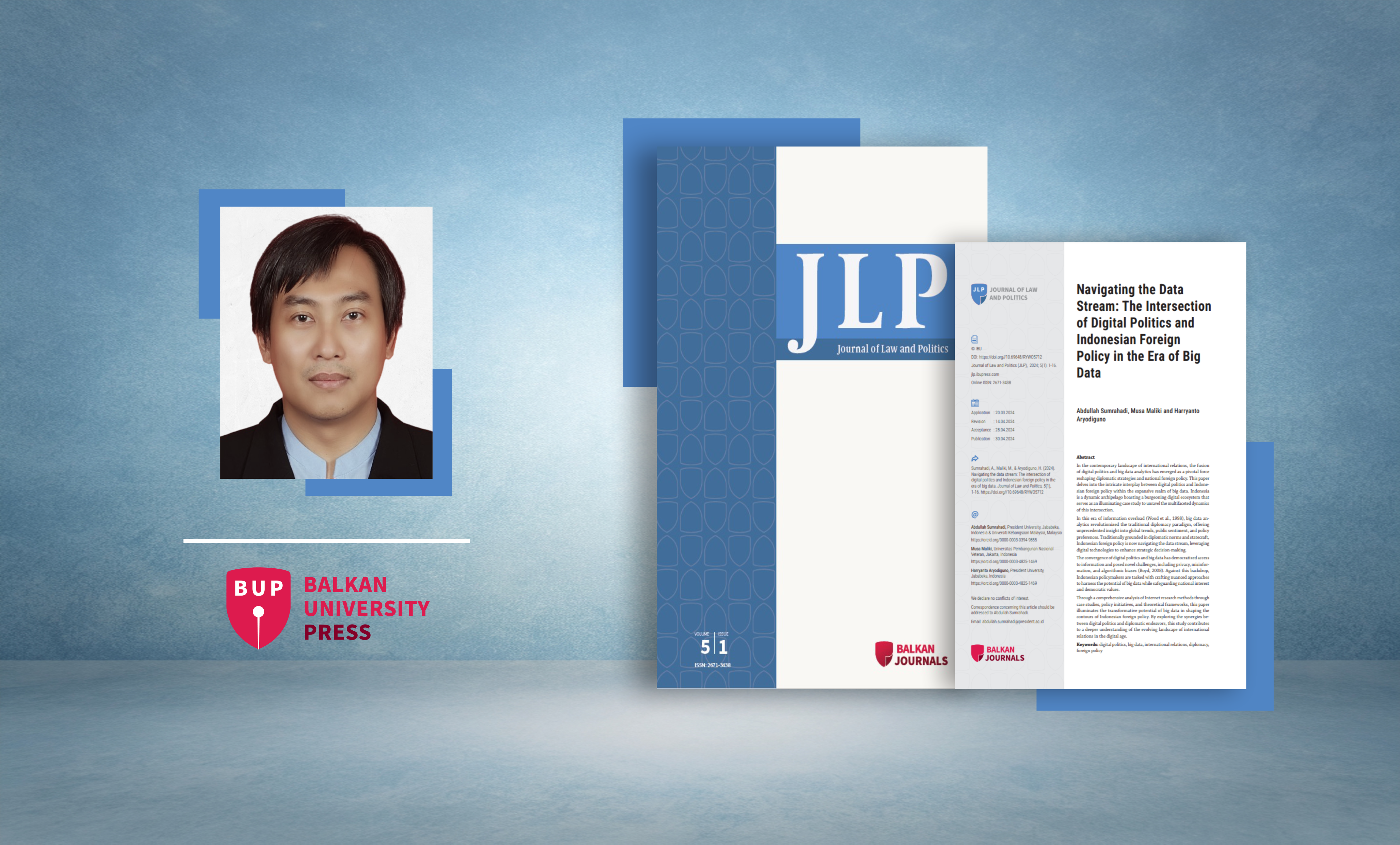
-

-

IJEP is now indexed in the Copernicus Journals Master List
Date: 23.09.2024 -
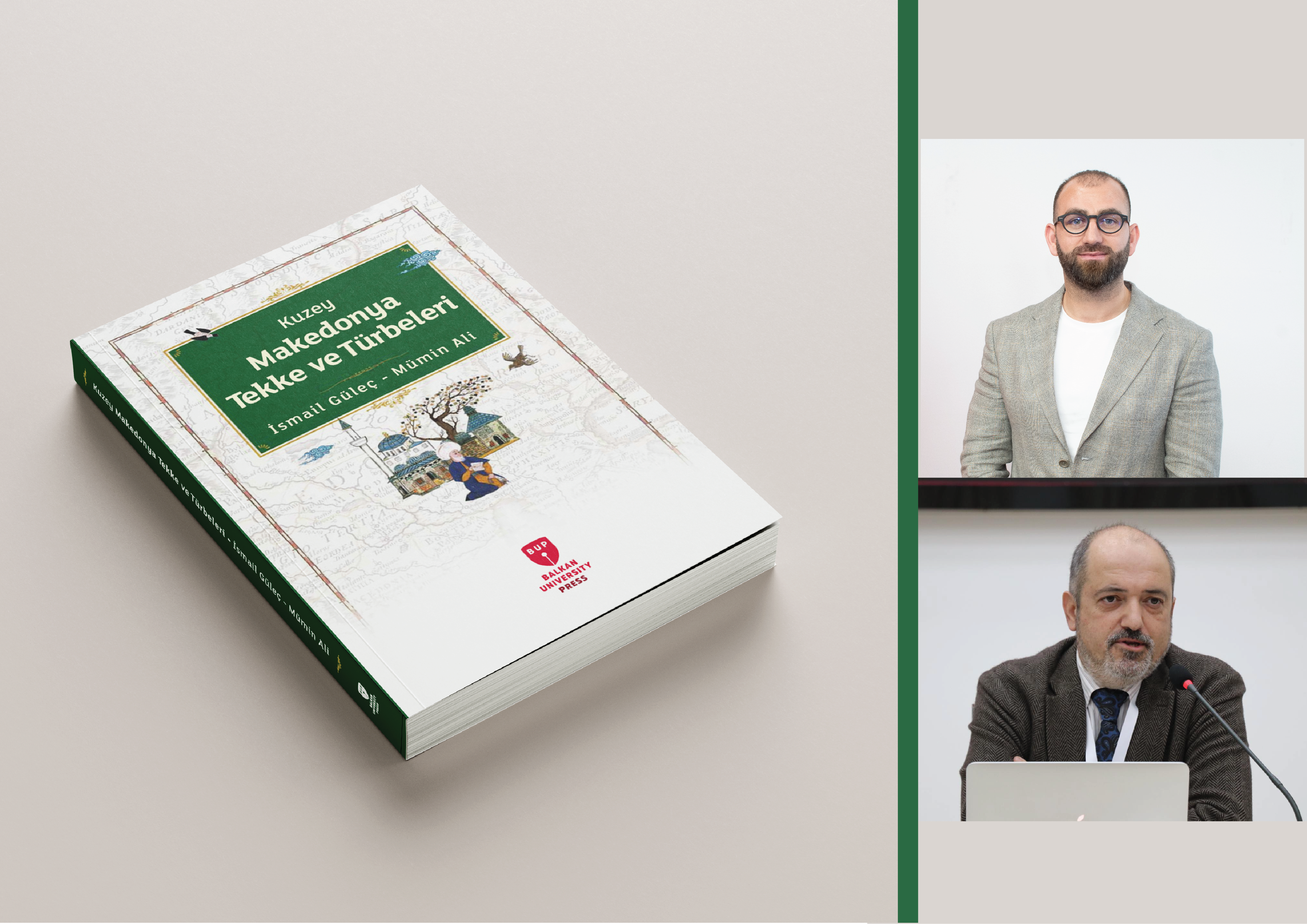
BUP INTERVIEW WITH PROF. ISMAIL GÜLEÇ AND ASST. PROF. MÜMIN ALI
Date: 26.09.2024 -

BUP Interview with Prof. Dzemil Bektovic
Date: 04.10.2024 -

-

BUP Interview with Prof. Shener Bilalli
Date: 30.10.2024 -

BUP Academic Blog with Prof. Tamás Szemlér
Date: 08.11.2024 -
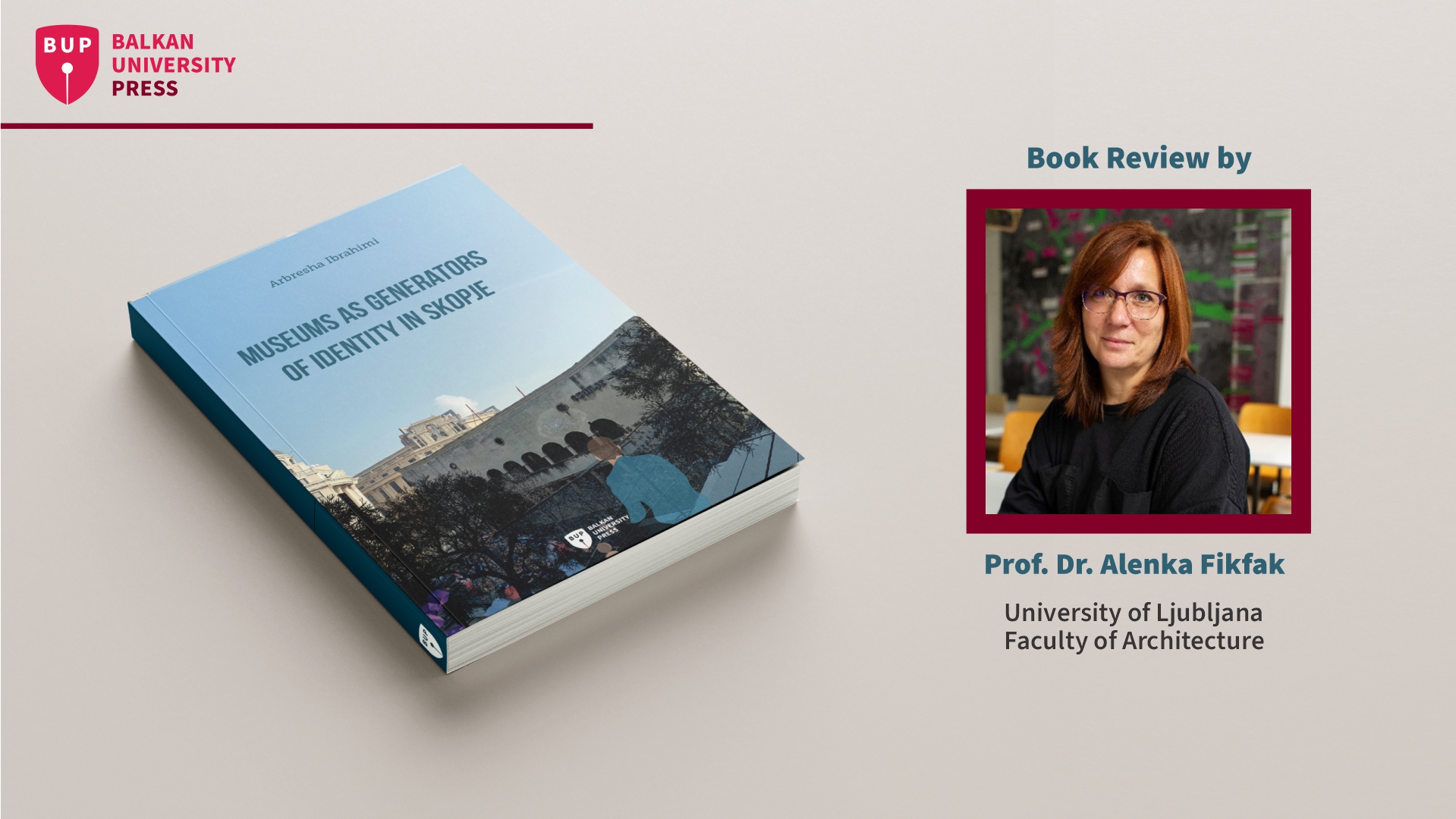
Book Review for "Museums as Generators of Identity in Skopje"
Date: 20.11.2024 -
BUP Interview with Arbresha Ibrahimi
Date: 25.11.2024 -

The first volume of Balkan Research Journal is here
Date: 02.12.2024 -
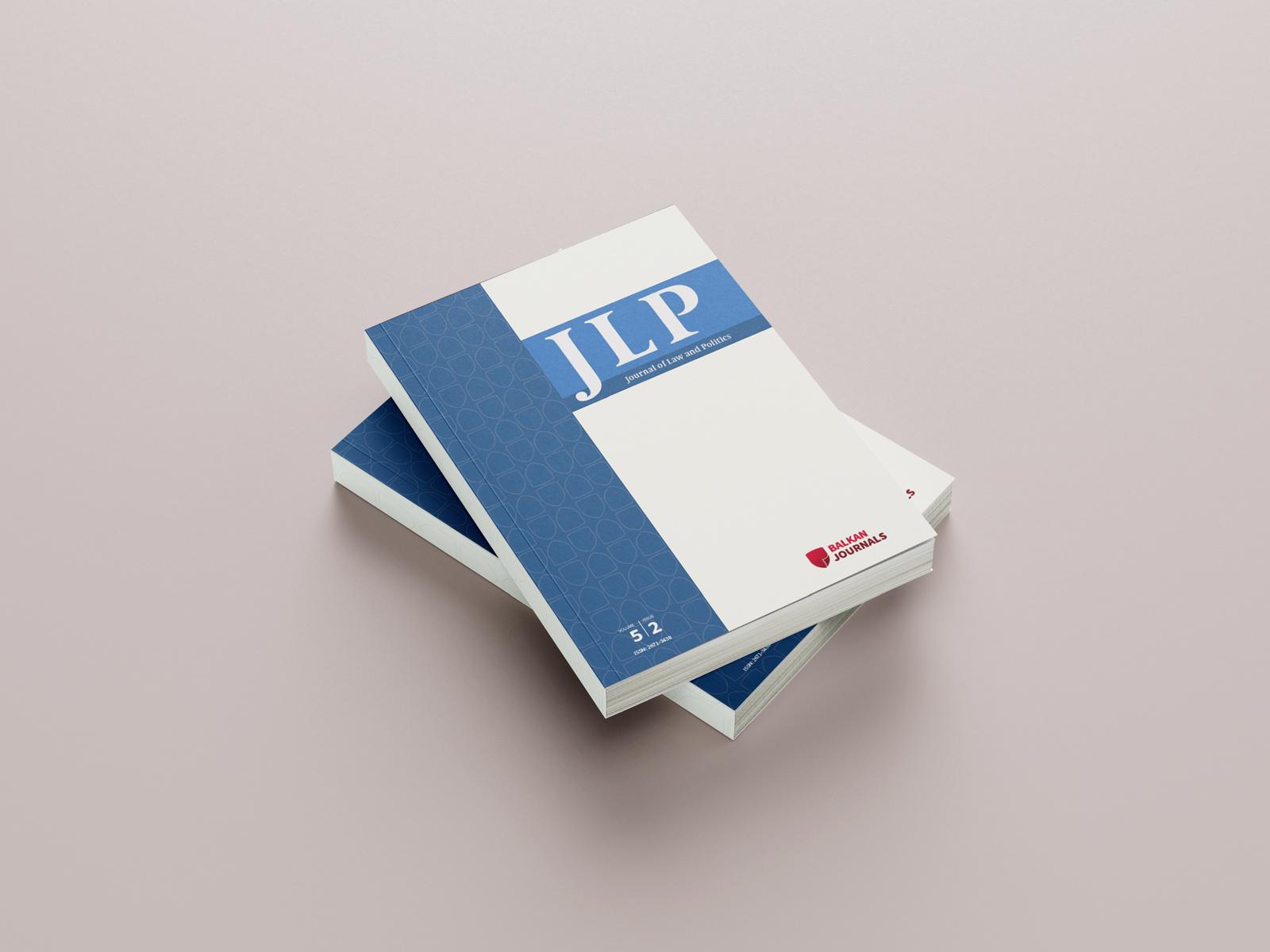
Volume 5, Issue 2 of the Journal of Law and Politics is published
Date: 31.10.2024 -

The inaugural issue of Journal of Balkan Architecture is published
Date: 29.11.2024 -

BUP Launch Event
Date: 10.12.2024 -

Grand Launch of Balkan University Press
Date: 12.12.2024 -

BALKAN UNIVERSITY PRESS
Date: 09.01.2025 -

Publication of a book
Date: 30.12.2024 -

Publication of a book
Date: 24.12.2024 -
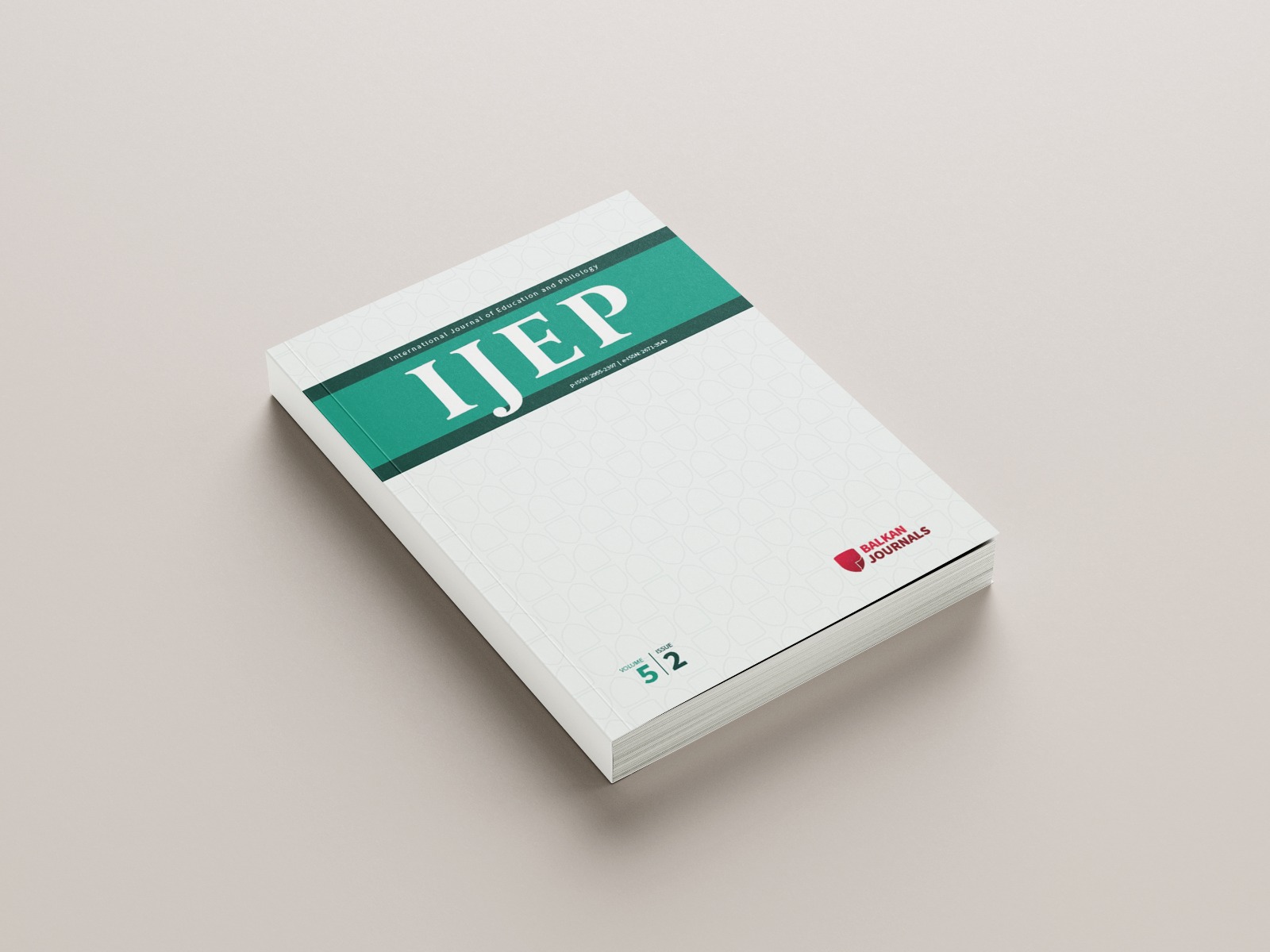
The December Issue of IJEP is published
Date: 31.12.2024 -

The December Issue of TEFMJ is published
Date: 16.01.2025 -

-
BUP Interview with Asst. Prof. Kristina Velichkovska
Date: 29.01.2025 -

-

-
BUP Interview with Kefajet Edip
Date: 18.02.2025 -

BUP Academic Blog by Frank Weinreich
Date: 20.02.2025 -
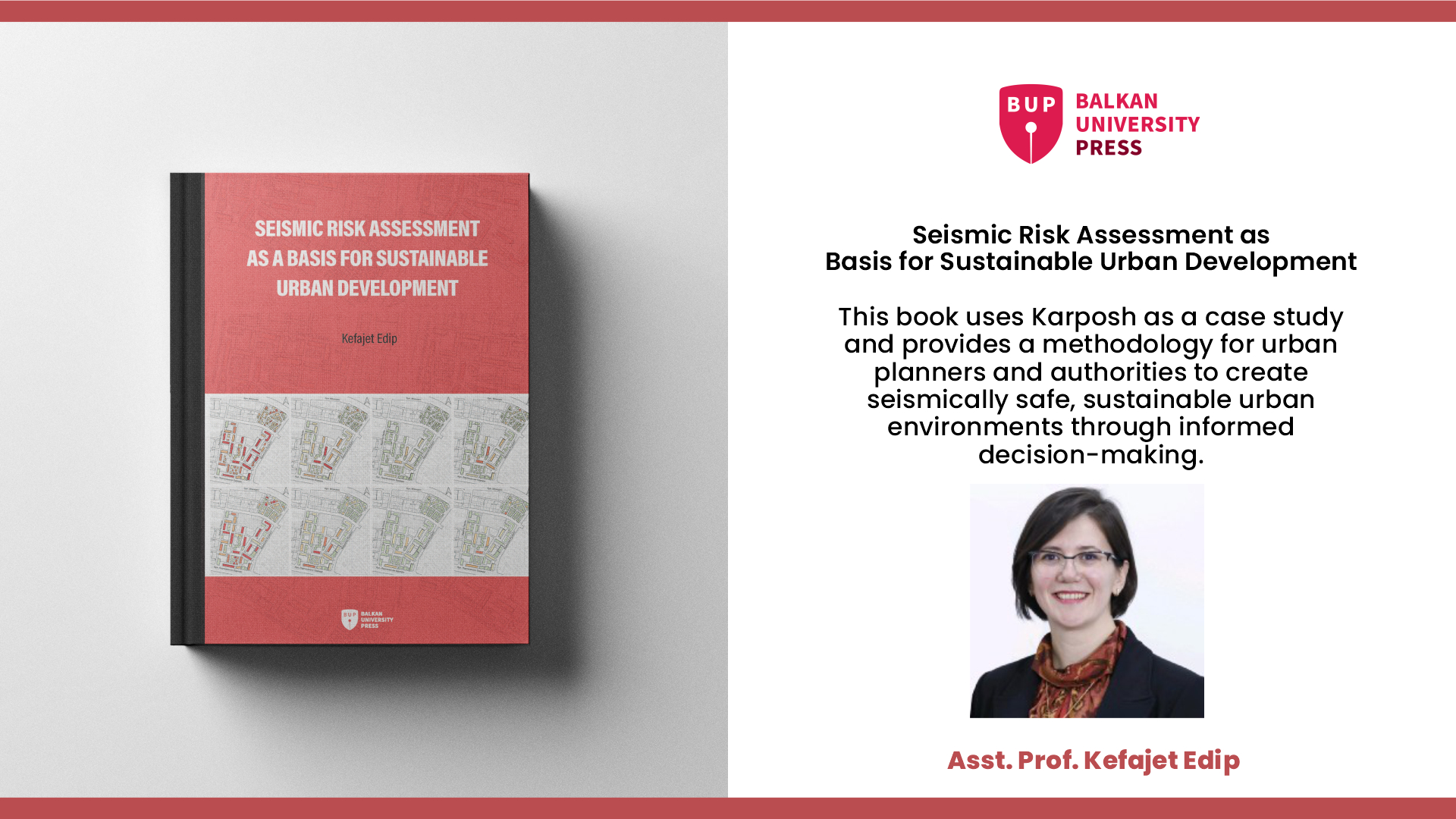
-

-

BUP Interview with Prof. Dr. Ana Kechan
Date: 30.04.2025 -

BUP Interview with Ozlem Kurt
Date: 14.05.2025 -

BUP Interview With Assoc. Prof. Igballe Miftari-Fetishi
Date: 03.09.2025 -

Publication of the book "An Integrated Approach to Academic Reading"
Date: 09.09.2025 -

Publication of the book "Civil Law"
Date: 17.09.2025 -
BUP Interview with Ekaterina Namicheva Todorovska
Date: 22.09.2025 -
.png)
-
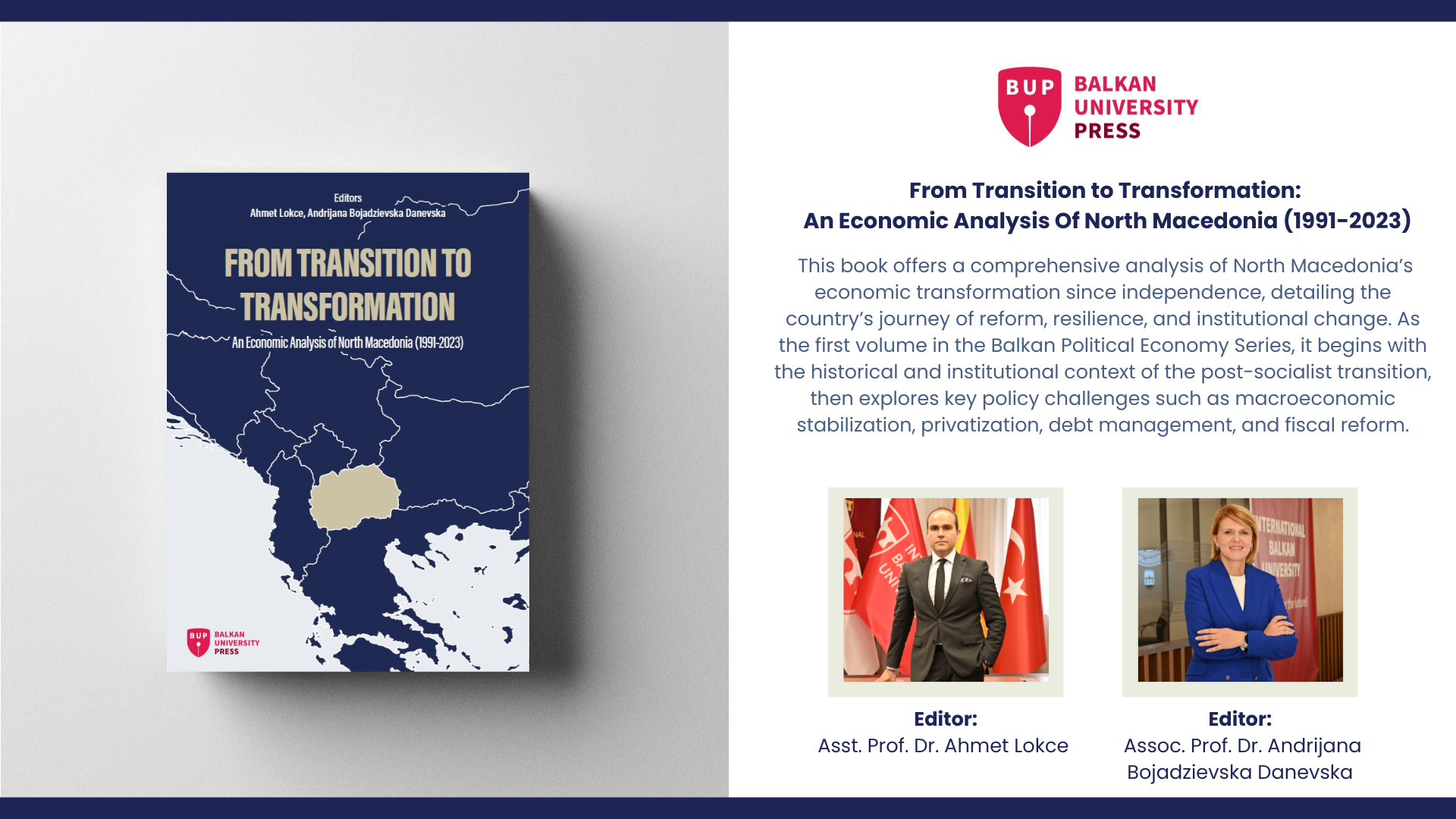
The first book of the Balkan Political Economy Series is published
Date: 07.10.2025 -

OPEN CALL for Book Chapters
Date: 08.10.2025 -

-
.png)
-

BUP Interview with Sumea Ramadani
Date: 24.10.2025 -
.png)
Publication of the book "Two Worlds of Healing" by Sumea Ramadani
Date: 05.11.2025 -

New BUP Publication
Date: 23.12.2025 -

Publication of the book "Kuzey Makedonya Kitabeleri"
Date: 26.12.2025
